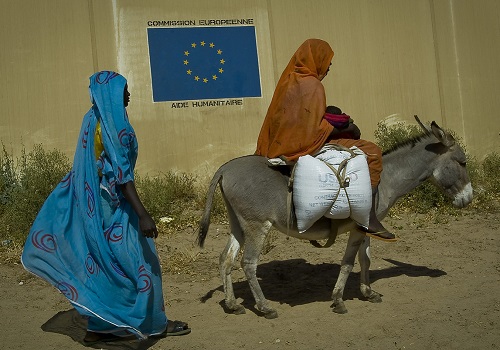
“Does a nation have the right to preserve its cultural values, even if it means defying an EU policy? And can it do so while accepting EU money?” asks Marcin Rzegocki. Specifically, European politicians are threatening to withhold EU funds from three nations that refuse to accept mostly Muslim refugees from the Middle East and Africa out of security concerns.
After European politicians invited refugees to resettle in Europe, they promptly determined the exact quota of refugees that each EU member nation must accept. But four nations – Poland, Hungary, the Czech Republic, and Slovakia – have resettled 28 of their combined 11,069 obligation, and they have announced no further refugees will be accepted.
In retaliation, the EU is threatening to cut off development funds, which flow from wealthy nations’ treasuries into EU coffers before being redistributed to less affluent nations. The pot is worth millions of euros to countries like Rzegocki’s native Poland. But are the funds worth the price in lost sovereignty? How should leaders weigh their moral responsibility of providing for their citizens’ economic well-being and possible threats to their safety? Can government money and government regulation be separated?
In a new essay for Religion & Liberty Transatlantic, Rzegocki writes that Western leaders may see this policy as a strict quid pro quo:
[O]thers might see it as thinly disguised paternalism of richer, post-colonial Western Europe towards less affluent, post-Communist Eastern Europe. The leaders of the Western countries, as well as the non-democratic structures of the EU they dominate, are persuaded that the money invested in these less developed countries gives them the right to make the supreme decisions about the shape of overall EU policy and the internal affairs of each member state.
In a richly researched and documented essay, he notes how money from the European Structural Funds and the Cohesion Fund – intended to reduce wealth disparities between Eastern and Western Europe – flows back to the wealthier nations, often in ways that defy market signals. Rzegocki also details how well-connected firms benefit from these centrally administered grants, how the policy undermines national governments’ core functions, how refugees may be led into danger by the incentive, and how liberal Western European nations use these funds to impose their more secular progressive values on the East by financial coercion. Much of the material in this wide-ranging and penetrating article is little-reported in the Western media.
The backdrop to all of these moral questions is the notion that he who receives Caesar’s funds must dance to his tune. Is it possible to maintain autonomy while remaining economically dependent upon another institution? He answers:
Nations have an inherent moral duty to protect their citizens, to represent their interests in international tribunals, to preserve social cohesion, and to discourage vulnerable populations from risking their lives thanks to perverse incentives offered by the EU. Only by shunning EU funds can any nation be free from the coercion of EU leaders and fulfill its moral obligations.
You can read his full essay here.
(Photo credit: European Commission DG ECHO. This photo has been cropped. CC BY-SA 2.0.)

